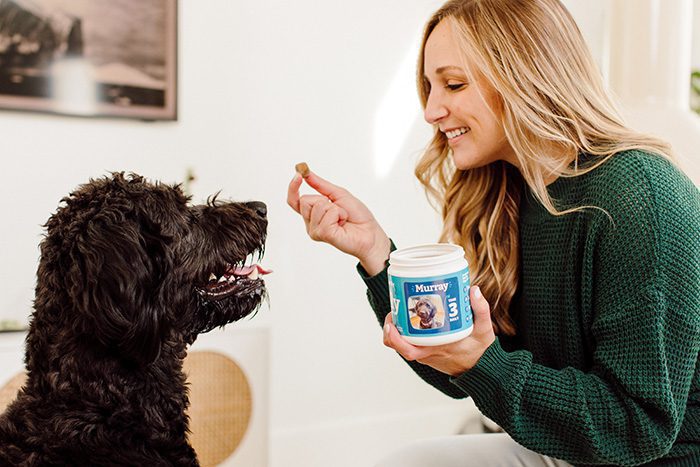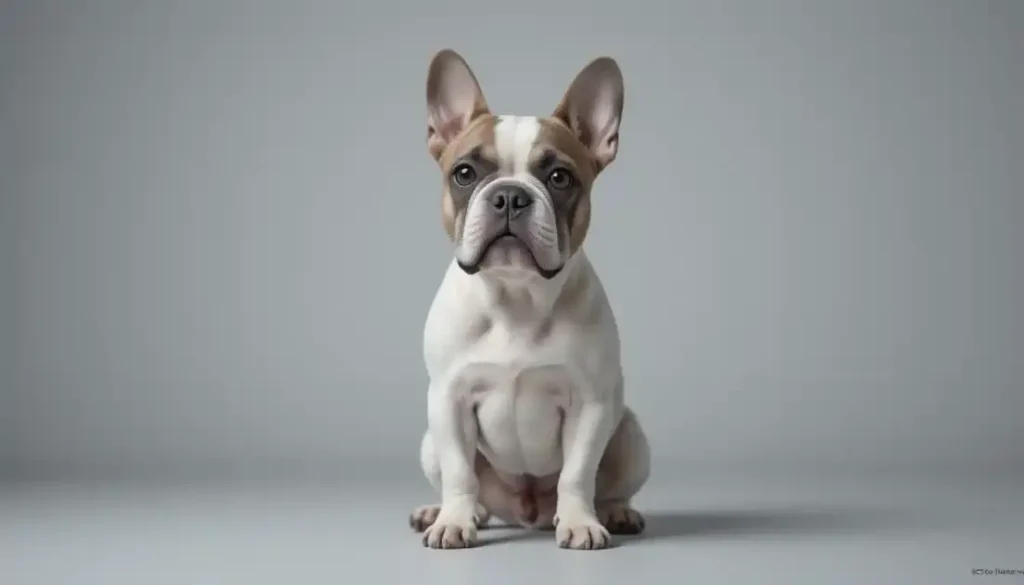The French Bulldog is a compact, muscular companion known for its bat‑like ears, short snout, and playful personality.
This guide covers everything from history and health to training, grooming, and how to choose a reputable breeder, giving you the facts you need to care for a French Bulldog.
History and Origins of the French Bulldog
The French Bulldog’s story begins in 19th‑century England, where toy bulldogs were bred for companionship. When the London smog made the breed less popular, many enthusiasts emigrated to France, where the dogs quickly became a Parisian favorite.
- Early roots: Descended from English bulldogs and small terriers brought to French ports.
- Industrial era: Parisian lace workers kept the dogs as lap companions in crowded apartments.
- Official recognition: The Société Centrale Canine (French Kennel Club) recognized the breed in 1880.
- Modern popularity: The French Bulldog ranks among the top‑registered breeds in the United States, the United Kingdom, and Australia.
Understanding this heritage helps you appreciate the breed’s love of human contact and its resilience in urban settings.
Physical Characteristics of the French Bulldog
A French Bulldog’s appearance is instantly recognizable, but the details matter when you’re selecting a healthy puppy.
Size and Build
- Weight: 16–28 lb (7–13 kg).
- Height: 11–12 in (28–31 cm) at the shoulder.
- Body shape: Broad chest, sturdy ribcage, and a compact, low‑centered stance.
Head, Face, and Ears
- Skull: Large, square‑shaped head with a pronounced stop (the angle between the forehead and muzzle).
- Muzzle: Extremely short; the nose has 5–7 nostrils, giving the breed its characteristic “snub‑nose.”
- Ears: Upright, “bat‑like,” set high on the skull and rounded at the tip.
Coat and Color
- Texture: Short, smooth, and fine; requires minimal brushing.
- Standard colors: Brindle, fawn, cream, white, and combinations with a black mask.
- Prohibited colors: Liver, chocolate, and merle (these are disallowed by most registries due to health concerns).
These physical traits create the French Bulldog’s lovable silhouette but also bring unique health challenges that owners should anticipate.

Temperament and Personality of the French Bulldog
The French Bulldog’s temperament is a major draw for families, seniors, and apartment dwellers alike.
- Affectionate: They seek constant human contact and enjoy lap time.
- Playful: Short bursts of energy followed by a quick nap—perfect for owners who enjoy interactive play without marathon walks.
- Stubborn yet eager: While they may resist commands they find boring, they love to please their favorite person when motivated with treats.
- Good with children: Their tolerant nature makes them patient companions, though supervision is always advised with very young kids.
- Alert watchdog: They’ll bark at strangers, but they are not aggressive; they simply want to be involved.
Socialization from an early age reinforces these traits and reduces the risk of shyness or excessive barking.
French Bulldog Health Overview
A French Bulldog’s health profile is a blend of breed‑specific predispositions and general canine concerns. By recognizing the most common conditions, you can take preventive steps and seek timely veterinary care.
| Health Issue | Primary Cause | Typical Symptoms | Prevention / Management |
|---|---|---|---|
| Brachycephalic Airway Syndrome (BAS) | Short skull and narrowed nostrils | Weight control, avoid overheating, and surgical correction of stenotic nares if needed | Joint‑supporting diet, controlled exercise, and regular orthopedic exams |
| Hip Dysplasia | Improper joint development | Stiffness, reluctance to jump, limping | Compressed spine due to a short back |
| Intervertebral Disc Disease (IVDD) | Avoid high jumps, use ramps, and maintain healthy weight | Hunched back, pain, weakness in hind limbs | Avoid high jumps, use ramps, and maintain a healthy weight |
| Allergic Dermatitis | Food or environmental allergens | Itchy skin, red patches, hot spots | Hypoallergenic diet, regular bathing, veterinary skin panel |
| Eye Problems (e.g., cherry eye, corneal ulcers) | Shallow eye sockets, folded eyelids | Redness, discharge, squinting | Keep eyes clean, monitor for trauma, prompt vet attention |
Brachycephalic Airway Syndrome
The French Bulldog’s short muzzle makes it prone to airway obstruction, especially in hot or humid weather. Signs include noisy breathing, gagging, and exercise intolerance.
Managing temperature, limiting strenuous activity, and maintaining an ideal body condition are essential. In severe cases, a veterinarian may perform a soft palate resection or nostril widening surgery.
Hip and Spine Health
Although not as high‑risk as larger breeds, the French Bulldog can develop hip dysplasia and IVDD. Regular low‑impact exercise, a balanced calcium‑phosphorus diet, and joint supplements (glucosamine, chondroitin) can help keep the joints supple.
Skin and Allergy Care
Their folds, especially around the face and neck, can trap moisture and foster bacterial growth. Daily inspection and gentle cleaning with a damp cloth keep infections at bay.
By staying informed about these conditions, you give your French Bulldog the best chance at a long, happy life.
French Bulldog Nutrition and Dietary Needs
Good nutrition fuels a French Bulldog’s playful nature while protecting its delicate airway and joints.
- Calorie control: Because the breed loves food, aim for 20–30 kcal per pound of ideal body weight per day.
- High‑quality protein: Choose a formula with at least 23 % animal protein to support muscle maintenance.
- Moderate fat: 12–15 % fat provides energy without excessive weight gain.
- Omega‑3 fatty acids: Add fish oil or a kibble enriched with EPA/DHA to support skin health and reduce inflammation.
- Joint supplements: Include glucosamine‑based additives if the dog is prone to hip or spinal issues.
Feeding Schedule
| Age | Meals per Day | Portion Size (approx.) |
|---|---|---|
| 8 weeks–6 months | 3–4 meals | ½ cup kibble (adjust for brand) |
| 6 months–1 year | 2–3 meals | ¾ cup kibble |
| Adult (1 year+) | 2 meals | 1 cup kibble (depending on activity) |
Avoid feeding table scraps, especially high‑salt foods, as they can exacerbate BAS symptoms. Fresh water should be available at all times, and bowls should be shallow to reduce strain on the neck.
French Bulldog Exercise, Play, and Activity
While the French Bulldog is not a marathon runner, regular activity is vital to prevent obesity and keep joints supple.
- Short walks: Two 15‑minute walks on a leash are sufficient for most healthy adults.
- Indoor play: Fetch with a soft ball, tug‑of‑war with a rope toy, or puzzle feeders stimulate both mind and body.
- Heat caution: Because of their brachycephalic anatomy, exercise should be limited to cooler parts of the day (early morning or late evening).
- Avoid high impact: Stair climbing, jumping from furniture, or running on hard surfaces can stress the spine and hips.
A simple routine of a brief walk, a quick training session, and a 10‑minute playtime keeps the French Bulldog happy without overtaxing its respiratory system.
French Bulldog Grooming and Daily Care
Grooming a French Bulldog is straightforward but requires attention to the breed’s specific needs.
- Brushing: Use a soft-bristle brush once a week to remove loose hair and distribute natural oils.
- Bathing: Bathe every 4–6 weeks with a mild, hypoallergenic shampoo; avoid over‑bathing, which can dry the skin.
- Facial folds: Clean the wrinkles daily with a damp cotton ball, then pat dry to prevent yeast infections.
- Nail trimming: Trim the nails every 3–4 weeks; if you hear the nail clicking on a hard surface, it’s time for a cut.
- Dental care: Brush teeth 2–3 times a week with a dog‑safe toothpaste; dental chews can supplement brushing.
Regular grooming sessions also provide an excellent opportunity to inspect for skin irritations, ear infections, or abnormal growths.

French Bulldog Training and Socialization
Training a French Bulldog works best when you tap into its desire to please and its short attention span.
- Positive reinforcement: Use soft treats, clicker cues, and enthusiastic praise; never use harsh corrections.
- Short sessions: Keep lessons under five minutes and end on a successful note.
- Consistency: Use the same command word and hand signal for each behavior across all family members.
- Early socialization: Introduce your puppy to a variety of people, gentle dogs, sounds, and surfaces between 8–12 weeks.
Basic Commands Checklist
- Sit – “Sit” + treat held above the head.
- Stay – “Stay” with a palm barrier, step back a foot, reward.
- Come – Recall from a short distance using a happy tone.
- Leave it – Teach by offering a low‑value item, then rewarding when the dog looks away.
With patience and consistency, the French Bulldog becomes a well‑behaved companion who enjoys learning new tricks.
Living Environment and Suitability for the French Bulldog
The French Bulldog thrives in environments that match its size, activity level, and need for human contact.
- Apartment‑friendly: Their modest size and low exercise demand make them ideal for city living.
- Family homes: They get along well with children, provided the kids are taught gentle handling.
- Climate considerations: Hot, humid climates can aggravate breathing issues; air‑conditioned homes are a plus.
- Companion‑focused: They prefer to be near a person most of the day; leaving them alone for long periods can lead to separation anxiety.
If you can provide a climate‑controlled indoor space, regular short walks, and plenty of affection, a French Bulldog will fit seamlessly into your lifestyle.
Choosing a French Bulldog: Adoption vs. Breeder
Deciding whether to adopt or purchase from a breeder is a crucial step. Both routes can lead to a healthy, happy French Bulldog; the difference lies in the process and guarantees.
| Factor | Adoption (Shelters/Rescues) | Reputable Breeder |
|---|---|---|
| Cost | Adoption fees $150–$500 (includes spay/neuter, microchip) | Puppy price $2,000–$5,000 (depends on lineage) |
| Health Screening | May have limited vet records; often screened for major issues | Health testing for hips, eyes, cardiac; genetic screenings for common breed disorders |
| Puppy Socialization | Adult dogs may already be house‑trained | Puppies receive early socialization with littermates and humans |
| Breed Purity | May be mixed or pure; varies | Purebred with documented lineage |
| Support | Limited post‑adoption guidance | Ongoing advice, health guarantees, and sometimes a contract for returns if health issues arise |
When selecting a breeder, request to see health clearances (OF‑A, CERF), tour the facility, and ask about the parents’ temperament. If you choose adoption, consider French Bulldog rescue groups, which specialize in matching the breed’s specific needs with suitable owners.
Traveling with a French Bulldog
Travel can be enjoyable for a French Bulldog, but extra precautions protect its unique anatomy.
- Vehicle safety: Use a crash‑tested pet carrier or a pet‑seat belt harness to keep the dog secured.
- Temperature control: Never leave a French Bulldog in a parked car; even a few minutes in warm weather can cause heatstroke.
- Air travel: Choose airlines that accept brachycephalic breeds, book a climate‑controlled cabin, and keep the dog hydrated.
- Documentation: Carry vaccination records, a recent health certificate, and a microchip ID.
- Accommodations: Verify that hotels or rentals allow pets and that the sleeping area is well‑ventilated.
By planning and respecting the breed’s breathing sensitivities, you and your French Bulldog can explore new places safely.

Common Myths About the French Bulldog
Misinformation can lead to mismatched expectations. Below are the most frequent misconceptions and the truth behind them.
- Myth: French Bulldogs are aggressive guard dogs. Fact: They are alert and may bark at strangers, but they are generally friendly and rarely exhibit true aggression.
- Myth: They don’t need exercise because they’re “couch potatoes.” Fact: While they require only short walks, daily activity prevents obesity and joint problems.
- Myth: Their flat face makes them immune to allergies. Fact: They are prone to skin fold infections and often develop food or environmental allergies.
- Myth: All French Bulldogs are low‑maintenance because their coat is short. Fact: Their facial wrinkles need daily cleaning to avoid infections, and their ears require regular inspection.
- Myth: They can tolerate extreme heat because they love lounging in the sun. Fact: Their brachycephalic anatomy makes them highly susceptible to heatstroke; they should never be left in hot environments.
Debunking these myths helps prospective owners make an informed decision and provide appropriate care.
FAQs
What is the average lifespan of a French Bulldog?
Most French Bulldogs live 10–12 years with proper care, though respiratory and orthopedic issues can sometimes shorten that span. Regular veterinary check‑ups and weight management increase longevity.
Do French Bulldogs shed a lot?
They have a short, low‑shedding coat, making them a good choice for people who dislike heavy hair loss. Weekly brushing keeps loose hair under control.
Are French Bulldogs good with other pets?
Yes, when socialized early. They tend to get along with calm dogs and cats, but their playful bite can be too rough for very small animals. Supervised introductions are recommended.
How much does a French Bulldog cost from a reputable breeder?
Prices typically range from $2,000 to $5,000 in the United States, depending on lineage, health testing, and location. Expect to pay extra for registration papers, health guarantees, and initial veterinary care.
Can a French Bulldog live in a hot climate?
They can, but extra precautions are needed: keep them indoors during peak heat, provide air‑conditioned spaces, avoid strenuous activity in warmth, and monitor for signs of overheating.

Conclusion
The French Bulldog is a charming, compact companion whose distinctive bat‑ears, short snout, and affectionate nature have captured hearts worldwide.
By understanding its history, physical traits, temperament, and breed‑specific health concerns, you can create a safe, loving environment that lets your French Bulldog thrive.
Prioritize balanced nutrition, modest daily exercise, regular grooming of facial folds, and early socialization to prevent common problems.
Whether you adopt from a rescue or select a reputable breeder, ask for health clearances and commit to routine veterinary care.
With thoughtful planning and proactive care, your French Bulldog will reward you with decades of loyalty, snuggles, and endless delight.








